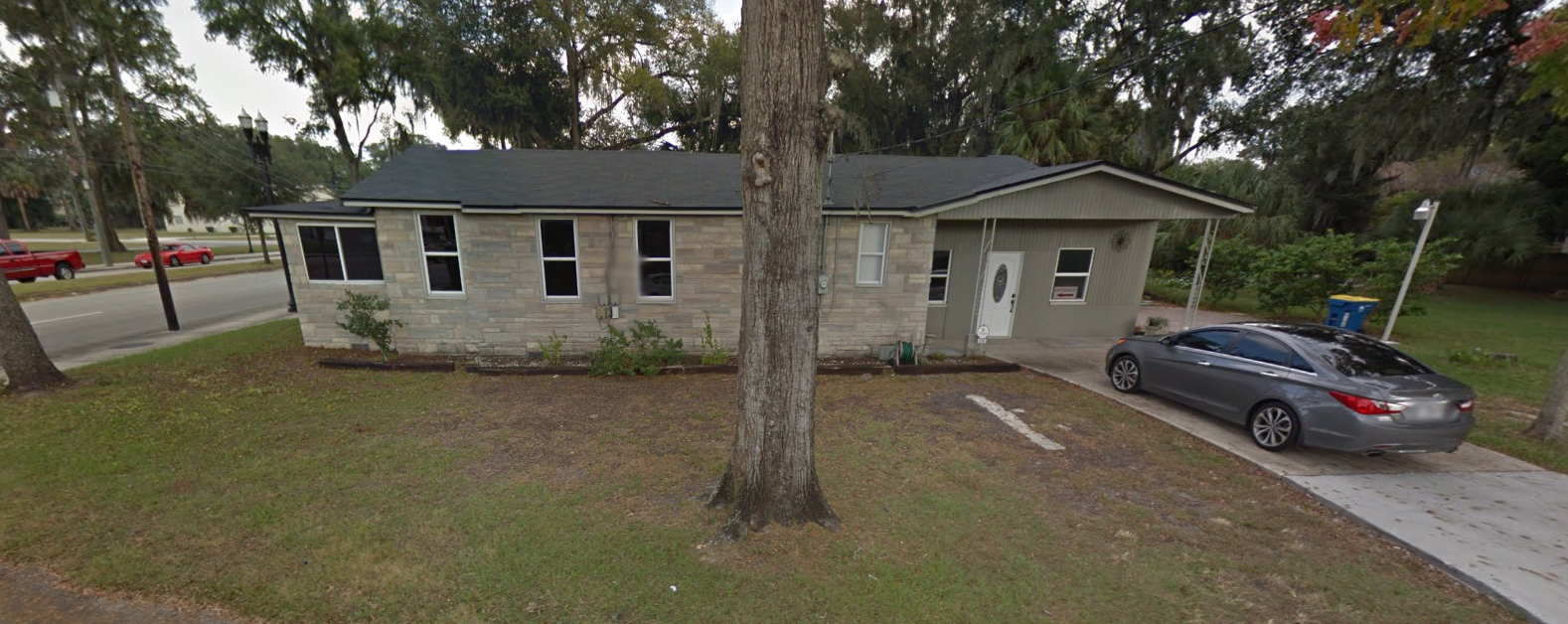Manthers Place Counseling
Overview
Manthers Place Counseling is a substance abuse treatment center for people seeking treatment near Duval County. As part of their treatment modalities for recovery, Manthers Place Counseling provides individual psychotherapy, cognitive behavioral therapy, and dialectical behavior therapy during treatment. Manthers Place Counseling is located in Jacksonville, Florida, accepting cash or self-payment for treatment.
Manthers Place Counseling at a Glance
Payment Options
- Cash or self-payment
Assessments
- Comprehensive mental health assessment
- Comprehensive substance use assessment
Age Groups
- Adults
- Seniors
- Young adults
Operation
- Private for-profit organization
Treatment At Manthers Place Counseling

Conditions Treated
Alcoholism:
Alcohol addiction is a health problem where drinking takes control over a person's life. It affects how their brain thinks and acts, leading to strong desires to drink, bad feelings, sudden actions, and discomfort when not drinking. To help someone with this problem, there are treatments like detox, counseling, group support, and learning coping methods. While treatment can't completely cure the urge to drink, it helps people regain control of their lives and feel better overall.
Mental health treatment:
Mental health treatment involves a range of therapeutic approaches, provided by licensed professionals, to address mental health challenges. It includes psychotherapy, medication, and holistic practices to help individuals manage conditions, improve coping skills, and enhance overall well-being. The goal is to empower individuals to lead fulfilling lives and reduce the stigma surrounding mental health.
Substance use treatment:
Substance use rehabilitation embodies a holistic treatment approach crafted to assist individuals contending with drug or alcohol addiction. This all-encompassing rehabilitation strategy encompasses two crucial components: initially addressing the physical dependency, frequently commencing with detoxification, and subsequently confronting the psychological triggers through a diverse array of therapeutic methods. The overarching objective is to empower individuals to achieve and maintain sobriety while equipping them with essential skills and coping mechanisms for a successful reintegration into society and a life free from substance abuse.

Levels Of Care
Intensive outpatient treatment:
IOP, or Intensive Outpatient, is a structured level of care for addiction, mental health, or other conditions. Unlike inpatient care, it allows individuals live at home and maintain daily responsibilities. They attend multiple weekly sessions totaling 9-20 hours, including individual and group therapy, family counseling, and skill-building classes for symptom management and relapse prevention.
Aftercare:
Aftercare is the continued support and care that individuals receive following the completion of their primary treatment program for substance abuse or addiction. This phase aims to aid individuals in maintaining their sobriety, improving personal skills and coping strategies, and integrating back into society. Aftercare can include ongoing therapy, support group meetings, education, and monitoring, which are crucial for preventing relapse and promoting long-term recovery. Through a combination of community support, accountability, and personal development, aftercare provides a structured pathway for individuals to continue their recovery journey in a supportive environment.
Outpatient:
Outpatient treatment in a rehab center offers flexible therapy sessions, typically ranging from 1-3 hours per week, allowing individuals to continue daily activities while receiving care. In contrast, intensive outpatient programs demand a more rigorous commitment, often involving 9-15 hours weekly, providing a more immersive therapeutic environment without the need for inpatient stays.

Treatment Modalities
Individual psychotherapy:
Individual Psychotherapy is a personalized therapeutic approach aimed at aiding individuals in overcoming addiction and its underlying psychological triggers. A licensed therapist works closely with the individual through one-on-one sessions to unearth and address personal challenges, emotional issues, and behavioral patterns contributing to their substance abuse. Individual psychotherapy lays a robust foundation for a sustainable recovery and a better quality of life by fostering self-awareness, coping strategies, and healthier behavioral responses.
Cognitive Behavioral Therapy:
Cognitive Behavioral Therapy (CBT) is a form of psychotherapy that emphasizes the critical role of thinking in how we feel and what we do. It aims to identify and challenge distorted or negative thought patterns and behaviors, teaching individuals to replace them with more constructive and rational beliefs. CBT is evidence-based and has been shown to be effective in treating a variety of psychological disorders, including depression, anxiety, and phobias, among others.
Dialectical Behavior Therapy:
Dialectical Behavior Therapy (DBT) is an evolved version of Cognitive Behavioral Therapy (CBT) that aims to assist individuals in recognizing and influencing the interplay among their thoughts, emotions, and actions. DBT is particularly beneficial for those grappling with self-harming behaviors, including self-inflicted injuries like cutting, as well as suicidal ideations or tendencies. Clinically, it has shown effectiveness in managing intense emotions and conditions such as Borderline Personality Disorder.
Trauma-related counseling:
Trauma therapy delves into past traumatic events that might be influencing a client's current life experiences. Often, trauma serves as a significant precipitant or underlying cause of addiction. Such traumas can arise from childhood sexual abuse, domestic violence, growing up with a mentally ill parent, early parental loss, and experiences of sexual assault in teen or adult years, among other circumstances. Trauma therapy aims to aid the individual in processing and navigating beyond these traumas, guided by the expertise and empathy of skilled mental health specialists.
12-step facilitation:
Recovery models grounded in 12-step programs prominently incorporate peer coaching, strongly emphasizing personal growth as the pathway to enduring sobriety. Regular participation in 12-step meetings, known for their anonymity, cost-free access, and daily availability, is encouraged. The 12 steps of recovery, anchored in spiritual principles, guide participants in unraveling the core issues of their addiction, taking accountability for their decisions, and coming to terms with aspects beyond their control. Chosen by the individuals themselves, sponsors offer personalized one-on-one mentorship, aiding in navigating through the recovery journey.
Motivational Interviewing:
Motivational Interviewing (MI) in addiction treatment is a client-centered counseling style aimed at promoting behavior change by helping clients explore and resolve ambivalence. Through empathetic engagement and evoking change talk, MI empowers individuals to harness their own motivation to overcome addiction, leading to a self-directed path to recovery. This approach respects individual autonomy while supporting positive change in a compassionate, non-confrontational manner.
Ancillary Services
Special Programs
- Clients who have experienced trauma
Contact Information
DISCLAIMER: The facility name, logo and brand are the property and registered trademarks of Manthers Place Counseling, and are being used for identification and informational purposes only. Use of these names, logos and brands shall not imply endorsement. BetterAddictionCare.com is not affiliated with or sponsored by Manthers Place Counseling.




